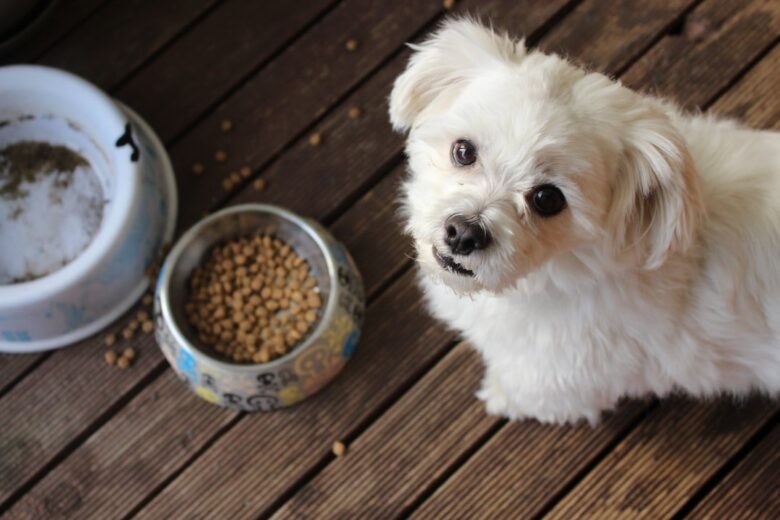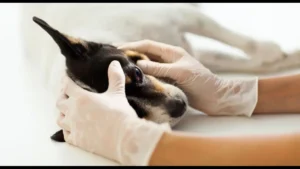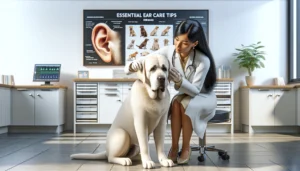The digestive system is an important part of a dog’s overall health and well-being. Taking care of your pet’s digestive system is important to ensure it stays healthy. This complete guide covers many aspects of caring for your dog’s digestive system, including nutrition, staying hydrated, common digestive problems, and ways to avoid them.
Table of Contents
Toggle1. Healthy Food:
Providing your dog with a healthy, balanced diet is an important part of keeping his digestive system healthy. It is important to provide your dog with high-quality food that is appropriate for his age, size, and activity level. Look for food that is based on high-quality proteins with just the right amount of carbohydrates, fats, vitamins, and minerals.
Don’t feed your dog too many leftovers or human food, as this can upset the delicate balance of his digestive system. Dogs should never eat foods such as chocolate, onions, and grapes as these are poisonous.
2. Stay Hydrated:
Getting enough water is important for digestion. Make sure your dog always has clean, fresh water to drink. Dehydration can make it difficult to go to the toilet and lead to other digestive problems. Check your dog’s water bowl regularly, especially when it is warm outside or if your dog is very active.
3. Exercise Regularly:
Exercising your dog regularly is good for his health and helps him digest his food. Staying active makes your digestive system work harder, which promotes regular bowel movements and prevents constipation. Make sure your dog gets enough exercise every day, appropriate for his age and breed.
4. Common Digestive Problems and Treatments:
Vomiting and diarrhea: Vomiting and diarrhea may sometimes be normal, but frequent or severe episodes may indicate a deeper problem. Some common causes include poor eating habits, infections, or allergies. If the symptoms do not go away, you should take your hat to the vet for proper diagnosis and treatment.
Constipation: Constipation can occur if you don’t drink enough water, don’t eat enough fiber, or if you have a medical condition. Make sure your dog’s diet contains enough fiber and ensure he gets plenty of exercise. If the constipation does not go away, consult your vet for advice.
Gastrointestinal Problems: Gastrointestinal problems occur when you suddenly change your diet, eat spoiled food, or have food allergies. You should transition your dog to a new diet slowly, and you should be careful when giving him new treats or table scraps.
5. Ways to Keep Your Digestive System Healthy:
Regular vet checks: Take your dog to the vet for regular checkups to closely monitor his overall health and detect any digestive problems early.
Parasite control: Worms and other internal parasites can make your dog’s digestive system sick. Deworming should be done regularly, as recommended by your veterinarian.
Probiotics and Digestive Supplements: To keep your dog’s gut microbiome healthy, you may want to talk to your vet about giving your dog probiotics or digestive supplements.
Feed slowly: Some dogs may be better off using a bowl in which they can eat slowly so they don’t eat too quickly and develop stomach problems.
Conclusion
In summary, it is important to prioritize your dog’s digestion for his overall health. By feeding your pet a balanced diet, ensuring they stay hydrated and addressing any digestive issues immediately, you can make a significant impact on their health. Checking your pet regularly with your vet, removing parasites and providing supplements can all help keep his digestive system healthy. Remember, every dog is different, so talk to your vet about creating a care plan that suits your furry friend’s needs. You can improve your dog’s life and strengthen your bond with him by taking preventative measures and taking care of his digestion.
FAQs
1. How do I ensure that my dog eats healthily?
Choose a good dog food with a good protein source as the main ingredient. Make sure the food is suitable for your dog’s age, size and activity level.
2. How does keeping my dog hydrated affect his digestion?
Getting enough water is important for digestion. Make sure your dog always has fresh water available to prevent him from becoming dehydrated and developing digestive problems.
3. How often should I walk my dog to keep his digestive system healthy?
It is best to give your dog daily exercise that is appropriate for his breed and age. Being active makes the digestive system work harder, which helps with regular bowel movements.
4. How do you know if your dog has digestive problems?
Some of the most common symptoms include vomiting, diarrhea, constipation, and stomach problems. If the symptoms do not go away, you should take your hat to the vet for diagnosis and treatment.
5. Can I give my dog treats intended for humans?
Some foods that humans eat are safe for dogs, but other foods can be harmful. Stick to dog-safe foods and discuss other options with your vet.
6. How can I prevent my dog from developing stomach problems?
Checking your pet regularly with your vet, eliminating parasites, slowly changing his diet, and considering probiotics or digestive supplements can help prevent digestive problems.



